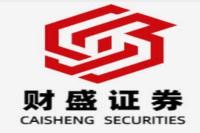神雾环保财务报告延误:深度解读警示函背后的风险与责任
Meta Description: 神雾环保, 吴道洪, 警示函, 财务报告延误, 公司债券, 信息披露, 监管风险, 投资风险, 财务审计, 公司治理
Imagine this: You're diligently reviewing your investment portfolio, eyeing the promising returns of Shenwu Environmental Protection (神雾环保). Suddenly, a red flag pops up – a regulatory warning, a delay in financial reporting, and questions swirling about corporate governance. What does it all mean? Is your investment at risk? This isn't just another dry regulatory announcement; it’s a case study in corporate transparency, the vital role of financial reporting, and the potential consequences of neglecting your legal obligations. We'll dissect the Beijing Securities Regulatory Bureau's (BSRB) decision to issue a warning letter to Shenwu Environmental Protection and its information disclosure officer, Wu Daohong, going beyond the headlines to reveal the underlying issues, potential repercussions, and what this incident signifies for both investors and corporate actors. Prepare for a deep dive into the complexities of Chinese securities regulations, the crucial importance of timely financial reporting, and the critical roles played by key personnel within a publicly listed company. This isn't just about numbers; it’s about trust, accountability, and the future of a company facing scrutiny. We'll explore the implications for investors, discuss potential legal ramifications, and uncover the lessons learned from this high-profile incident. Get ready to unravel the truth behind the delayed reports and understand the broader implications for the Chinese financial markets. Let's delve into the details and uncover the story behind the warning letter.
神雾环保财务报告延迟:对投资者和公司治理的影响
The Beijing Securities Regulatory Bureau (BSRB) recently issued a warning letter to Shenwu Environmental Protection Technology Co., Ltd. (神雾环保技术股份有限公司), a publicly listed company, and its information disclosure officer, Wu Daohong (吴道洪), for significant delays in releasing their 2023 annual report and 2024 semi-annual report. This isn't a minor oversight; it's a serious breach of regulations, highlighting crucial weaknesses in the company's corporate governance and information disclosure practices. The BSRB’s action underscores the importance of timely and accurate financial reporting in maintaining investor confidence and market stability. This incident serves as a stark reminder of the consequences of non-compliance, impacting not only the company's reputation but also the interests of its shareholders.
This delay, exceeding the stipulated deadlines as outlined in the Company Bond Issuance and Trading Management Measures (证监会令第222号), raises several red flags. Firstly, it suggests potential internal inefficiencies or mismanagement. Secondly, it raises concerns about the company's financial health, leading investors to question the nature of the delayed information. Is the company facing financial difficulties? Are there undisclosed issues affecting its performance? These are legitimate concerns that the delay has amplified. The lack of transparency erodes trust and can significantly impact investor sentiment, potentially leading to a decline in the company's share price and difficulty in raising further capital.
Moreover, the BSRB’s action against Wu Daohong, the information disclosure officer, directly points to individual accountability within the company. He, as the person responsible for ensuring timely and accurate reporting, bears the brunt of the consequences. This emphasizes the crucial role of individuals in upholding corporate compliance, showcasing that responsibility isn't solely a corporate entity's burden but also rests on the shoulders of key personnel. This is a crucial lesson for all publicly traded companies in China and beyond.
信息披露的重大意义 (Significance of Information Disclosure)
Timely and accurate information disclosure is the bedrock of a healthy and transparent capital market. Without it, investors operate in a state of information asymmetry, making informed investment decisions incredibly difficult, if not impossible. This lack of transparency can lead to market inefficiencies, distorted pricing, and ultimately, investor losses. The BSRB's action against Shenwu Environmental Protection demonstrates their firm commitment to enforcing regulations and protecting investors. The penalties for non-compliance, while seemingly minor in this instance (a warning letter), send a clear message that future transgressions will likely result in far more severe consequences. Imagine the domino effect: delayed reports lead to eroded investor confidence, hindering future fundraising efforts, and potentially even triggering delisting.
The importance of accurate and timely financial reporting cannot be overstated. For investors, it's the lifeblood of informed decision-making. For the company, it's a crucial aspect of maintaining credibility and building trust with stakeholders. For regulators, it's a vital tool for overseeing market stability and preventing fraudulent activities. This incident serves as a potent reminder of the interconnectedness of these elements.
公司治理的缺失与风险 (Shortcomings and Risks in Corporate Governance)
The Shenwu Environmental Protection case highlights potential gaps in the company’s corporate governance structure. Delays in financial reporting often point to deeper underlying issues, including:
-
Inadequate Internal Controls: Robust internal controls are essential for ensuring the accuracy and timeliness of financial reporting. This case suggests that Shenwu Environmental Protection may lack the necessary systems and processes to effectively manage its financial reporting procedures.
-
Lack of Oversight: The board of directors and senior management should actively oversee the financial reporting process. The delay suggests a lack of effective oversight and accountability within the company’s leadership.
-
Insufficient Resources: Insufficient resources allocated to the finance and accounting departments could also contribute to reporting delays. This could include a lack of qualified personnel or inadequate systems.
These issues, if left unaddressed, can lead to further regulatory scrutiny, damage to the company's reputation, and ultimately, financial losses for investors. The BSRB's warning letter is not just a reprimand; it's a call for immediate action to address these underlying problems.
投资者面临的风险 (Risks Faced by Investors)
Investors in Shenwu Environmental Protection are now faced with increased uncertainty. The delay in financial reporting raises concerns about the company's financial health and future performance. This uncertainty can lead to volatility in the company's stock price, potentially resulting in investment losses for shareholders. It's crucial for investors to carefully monitor the situation, seek additional information, and consider the implications of the BSRB's action before making any investment decisions. Diversification of investments is always a prudent strategy to mitigate risk.
未来展望与建议 (Future Outlook and Recommendations)
The BSRB's warning letter to Shenwu Environmental Protection serves as a cautionary tale for all listed companies. Maintaining robust corporate governance, implementing effective internal controls, and ensuring timely and accurate financial reporting are not just regulatory requirements; they are fundamental to building investor trust and ensuring long-term financial success. The company needs to undertake a comprehensive review of its financial reporting processes, strengthen its internal controls, and enhance its corporate governance framework. Transparency and accountability are paramount in regaining investor confidence.
常见问题解答 (FAQ)
Q1: What are the penalties for delaying financial reports in China?
A1: Penalties can range from warning letters (as seen in this case) to significant fines, suspension of trading, and even delisting. The severity of the penalty depends on the extent and nature of the delay, as well as any other violations.
Q2: What should investors do if they hold shares in Shenwu Environmental Protection?
A2: Investors should closely monitor the situation, seek additional information from the company and independent sources, and consider diversifying their portfolio to mitigate risk.
Q3: How can companies avoid similar situations?
A3: Companies should establish robust internal controls, allocate sufficient resources to their finance and accounting departments, and ensure effective oversight from the board of directors and senior management.
Q4: What is the role of the information disclosure officer?
A4: The information disclosure officer is responsible for ensuring that the company complies with all information disclosure regulations. Their role is crucial in maintaining transparency and investor trust.
Q5: What does this case tell us about the Chinese regulatory environment?
A5: This case demonstrates the Chinese regulator's commitment to enforcing regulations and protecting investors. Non-compliance can result in significant penalties.
Q6: What is the likely impact on Shenwu Environmental Protection's reputation?
A6: The reputational damage could be substantial. Eroded investor confidence can make it difficult to raise further capital and attract new business. Rebuilding trust will require significant effort and a demonstrable commitment to transparency and accountability.
结论 (Conclusion)
The BSRB's action against Shenwu Environmental Protection and Wu Daohong serves as a stark reminder of the importance of timely and accurate financial reporting. The case highlights the critical role of corporate governance, individual accountability, and the potential consequences of non-compliance. Investors should remain vigilant, and companies should prioritize transparency and robust internal controls to maintain investor trust and ensure long-term success. This incident underscores the vital link between regulatory compliance, corporate responsibility, and market stability in the dynamic landscape of Chinese securities markets. It's a lesson learned, not just for Shenwu Environmental Protection, but for all publicly traded companies operating within the jurisdiction.



